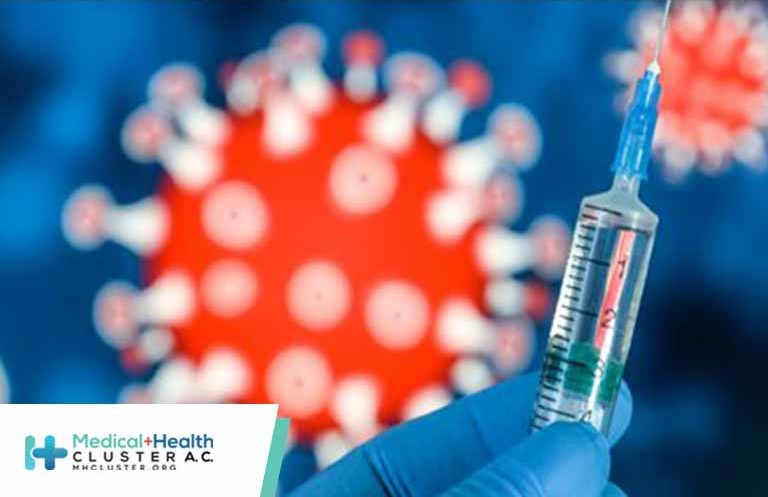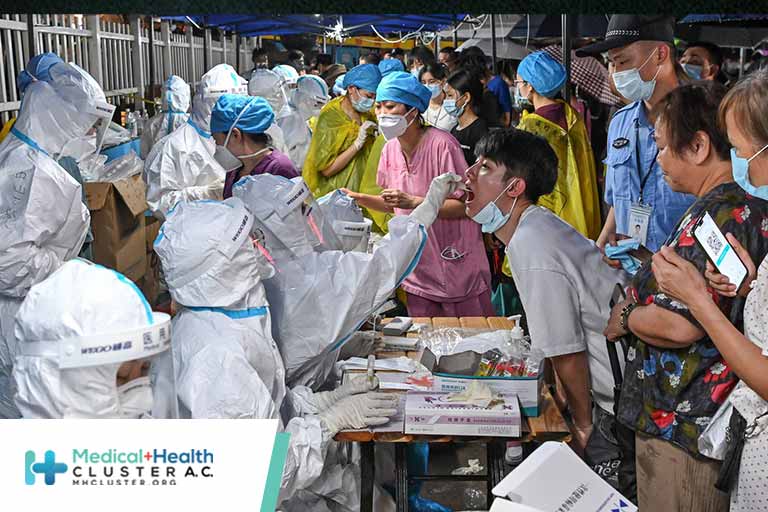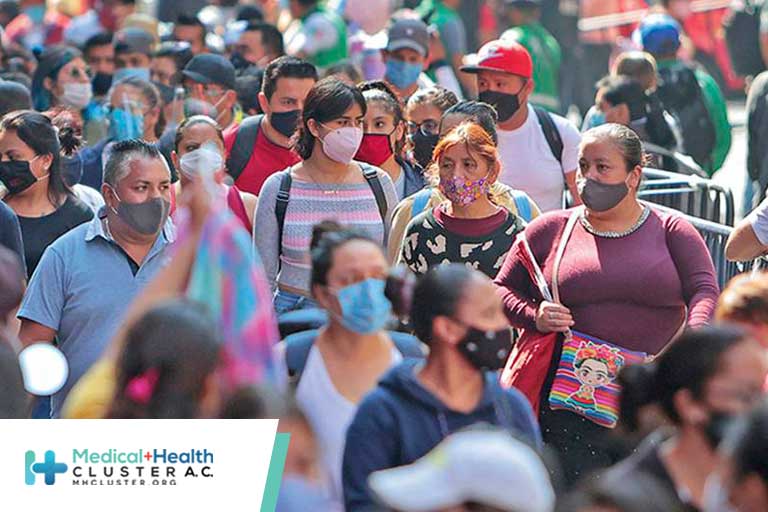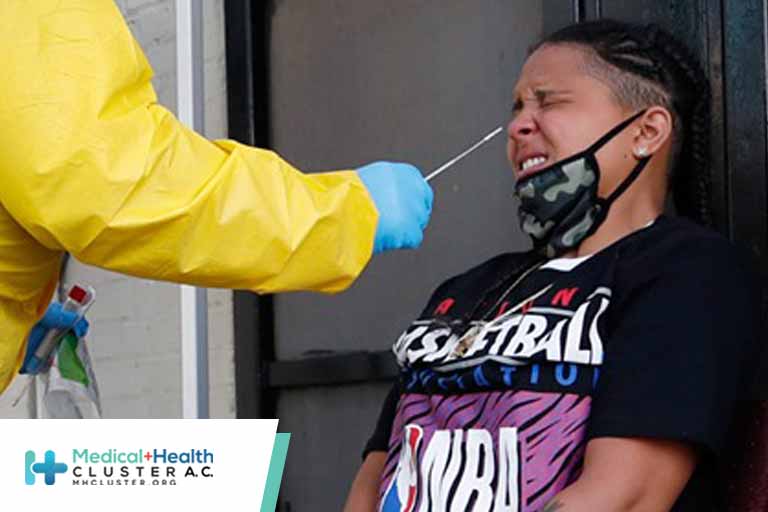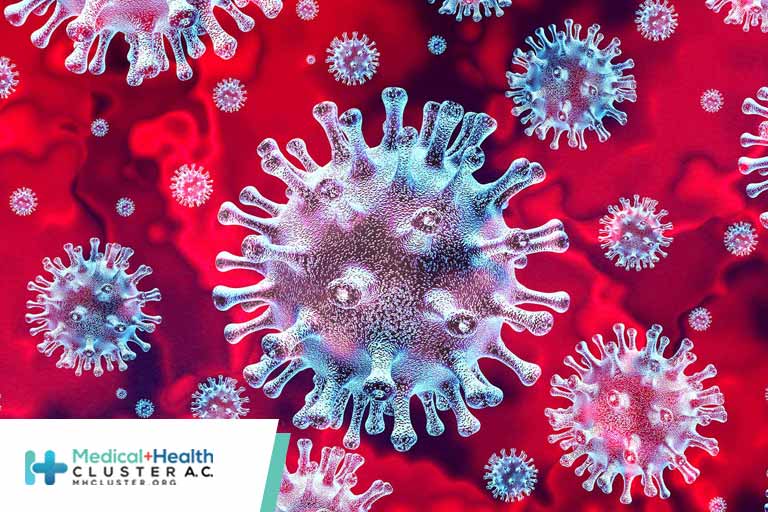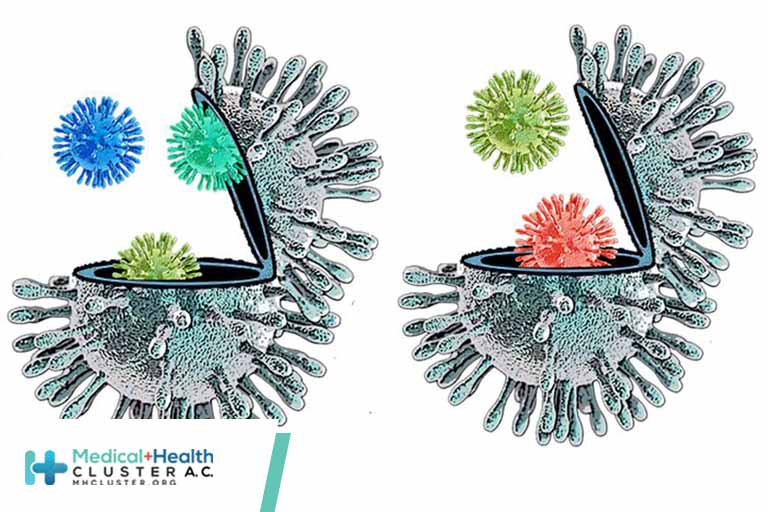Asymptomatic infected individuals (and those infected with Alpha) had relatively high viral loads; samples from Alpha cases also had higher probability of viral culture positivity. Determining the infectiousness of individuals with COVID-19 requires considering degree of symptoms, time point within disease course, and whether the infection involves wild-type SARS-CoV-2 or […]
Read More
Key Points Genetic variants of SARS-CoV-2 have been emerging and circulating around the world throughout the COVID-19 pandemic. Viral mutations and variants in the United States are routinely monitored through sequence-based surveillance, laboratory studies, and epidemiological investigations. A US government interagency group developed a Variant Classification scheme that defines three […]
Read More
https://www.thelancet.com/journals/lancet/article/PIIS0140-6736(21)01358-1/fulltext?utm_campaign=lancetcovid21&utm_content=169598491&utm_medium=social&utm_source=facebook&hss_channel=fbp-374651963469 Créditos: Comité científico Covid
Read More
An Australian-led study will investigate whether it’s possible to predict who remains susceptible to SARS-CoV-2 variants after having COVID-19 or receiving a COVID-19-specific vaccine. The study will explore the immune response to COVID-19-specific vaccines in Brazilian healthcare workers to find biomarkers that indicate whether someone will be protected from – […]
Read More
A single pill of the investigational drug molnupiravir taken twice a day for 5 days eliminated SARS-CoV-2 from the nasopharynx of 49 participants. That led Carlos del Rio, MD, distinguished professor of medicine at Emory University in Atlanta, Georgia, to suggest a future in which a drug like molnupiravir could be […]
Read More
La llamada “variante mexicana”, cuyo nombre científico es T478K. Al igual que otras cepas, esta presenta una mutación en la proteína Spike. Un grupo de investigación del Departamento de Farmacia y Biotecnología de la Universidad de Bolonia analizó más de un millón de secuencias del genoma del SARS-CoV-2. En donde se estudio, […]
Read More
What are the SARS-CoV-2 variants circulating at this time? How are variants classified as variants of interest or concern? What does this mean for the public? WHO’s COVID-19 Technical Lead Dr Maria Van Kerkhove explains in this Science in 5 video. https://www.facebook.com/whowpro/videos/312398667110502 What are the SARS-CoV-2 variants circulating at […]
Read More
La vacunación, al igual que el contagio, inmuniza a la persona afectada. Pero eso no significa que el virus desaparezca o no se contagié. Una de las preguntas más frecuentes sobre la vacuna contra el virus de la COVID-19 tiene que ver con su respuesta inmunitaria y sobre sus efectos post-aplicación. Si […]
Read More
Severe acute respiratory syndrome coronavirus 2 (SARS-CoV-2) is a member of a diverse family of enveloped, nonsegmented RNA viruses. The coronavirus genomic RNA is unusually large, the RNA polymerase is error-prone, and mutations accumulate with increasing frequency during infections. With continued uncontrolled transmission and viral replication, mutations that give the […]
Read More
Créditos: Comité científico Covid
Read More




